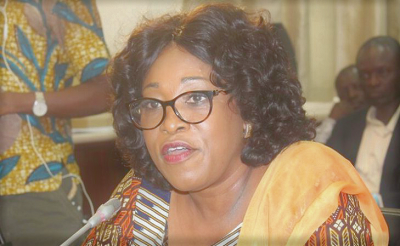Much as Ghana is committed to the free movement of goods and services within its borders, it will not compromise on security, the Minister of Foreign Affairs and Regional Integration, Ms Shirley Ayorkor Botchwey, has said.
"Ghana has worked hard to ensure the implementation of the protocol on free movement.
We have also made it easier for persons and goods to move freely throughout the country with the removal of several security checkpoints on our highways.
We are, however, committed to ensuring that the security of our country is not compromised," she emphasised.
Ms Botchwey said this in a speech read on her behalf at a workshop on free movement and migration within the Economic Community of West African States (ECOWAS) in Accra yesterday.
It was jointly organised by ECOWAS, the International Organisation for Migration (IMO) and the Ministry of Foreign Affairs and Regional Integration.
Understanding issues
Ms Botchwey said Ghana was determined to ensure better public understanding of issues relating to integration and their effective implementation.
To that end, she said, the ministry had organised events for stakeholders on the ECOWAS Brown Card, the ECOWAS Trade Liberalisation Scheme (ETLS), regional and continental integration, among other areas.
According to her, discussions had also been held with Parliament on matters relating to the right of citizens to enter, reside and establish economic activities in the territories of other member states.
She said her ministry also intended to carry out field studies on challenges faced by exporters in the movement of goods and services under the ETLS in furtherance of integration.
Ms Botchwey called on ECOWAS states to chart a path towards real regional integration which should lead to the development, prosperity and well-being of their people.
Citizens
The Head of the Free Movement and Migration Division of ECOWAS, Dr Tony Elumelu, said no ECOWAS citizen should be considered a foreigner in a member country.
He said ECOWAS citizens living in countries in the sub-region should be referred to as "community citizens" and not foreigners.
Therefore, he said, it was wrong to treat such people as foreigners and deport them to their countries of origin when they committed crimes in a host country in the sub-region.
According to him, any ECOWAS citizen who committed a crime in another country needed to be dealt with by the laws of the country where the crime was committed and not sent back to where he or she came from.
Dr Elumelu further observed that even though member countries must enhance security by improving intelligence and information sharing, there was no need for checkpoints on the roads.

